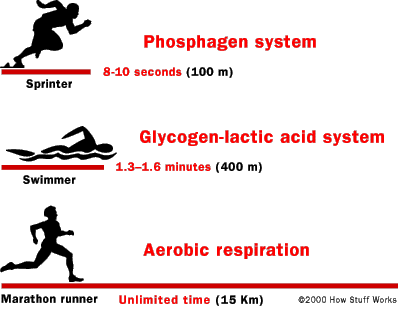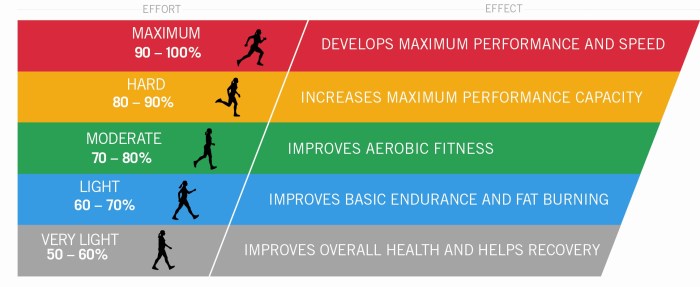A ketogenic diet is a low-carb, high-fat diet that can help someone lose weight and enjoy all kinds of benefits. Traditionally it was used to treat patients with epilepsy and other serious health issues, but now it's mainstream and is gaining popularity. To learn more about the keto diet, check out the Body Reboot book which explains more about the diet and how to reach ketosis.
Interestingly enough, this low-carb, high-fat diet is especially popular among athletes and others who enjoy working out. However, there are some things to keep in mind while staying active on a ketogenic diet.
For starters, let's look at some of the benefits of exercising while on the diet:
It might seem like ketosis is a hindrance to long-term exercise, but it actually has shown to provide significant benefits:
In one recent study, during a three-hour-long run, 2-3 times more fat burn was seen in ultra-endurance athletes who ate low-carb for an average of 20 months versus those following a high-carb diet.
In the same study, the low-carb group used and replenished the same amount of muscle glycogen as the high-carb group.
Being in ketosis might also help prevent fatigue during longer periods of aerobic exercise.
Plus, ketosis has been shown to help with blood glucose maintenance during exercise in obese individuals.
As mentioned above, the power of keto-adaptation helps low-carb dieters perform better in all forms of exercise with less carbs over time.
Perfect Keto also provides vital advice concerning what may be best if you plan to do more regular and high-intensity workouts:
If you do exercise that is more intense, such as working out more than three days a week and at high intensity, like sprinting or weightlifting, you’ll need to adjust your keto diet to fit your carb needs for your amount of exercise. Simply sticking to the standard ketogenic diet likely won’t be enough in this case.
A good rule of thumb is to eat 15-30 grams of fast-acting carbs, such as fruit, within 30 minutes before your workout and within 30 minutes after. This will ensure you provide your muscles with the proper amount of glycogen to perform during the training and also recover. It allows the carbs to be used exactly for this purpose and prevent any risk of leaving ketosis.
It's also a good idea to keep these tips in mind from Shape. In addition to reminding dieters that it's imperative to eat enough fat while exercising, the author also shares another exciting benefit to being on the keto diet!
You could burn more fat during cardio.
This is one of the main reasons people swear by keto for weight loss. “When in ketosis, you aren't using glycogen as your energy source,” says Booth. “Glycogen is a substance deposited in muscles and tissues as a reserve of carbohydrates. Instead, you're using fat and ketone bodies. If you are following aerobic exercises such as running or biking, a keto diet can help increase fat oxidation, spare glycogen, produce less lactate and use less oxygen.” In other words, that could translate into more fat burned during aerobic exercise. “However, it probably won't enhance performance,” he adds.
You really need to eat enough fat.
Otherwise, you'll miss out on all the benefits, and your performance could suffer. “If you don't eat enough fats on a keto diet, you are essentially doing an Atkins diet: high protein, low carb, AND low fat,” says Bergeron. “This can leave you extremely hungry, can actually lower your muscle mass, and is almost impossible to maintain.” There's a reason why most low-carb diets get a bad rap. Without enough fat to compensate for the carbs you're missing, you're likely to feel tired and miss out on actually going into ketosis. That's why it's super important that the majority of your calories come from healthy fat sources like grass-fed meats, fish, avocado, and coconut oil, says Bergeron.
If you've heard that working out while on the keto diet is dangerous or can drain you of energy, it's not accurate. Sure it's important to make sure you are eating the right macros for a long workout, but for the most part, your energy should not be affected. The Daily Nutrition expands on this.
There are some myths out there that say if you workout while on a keto diet, your performance during the workout will suffer greatly. This is 100% false.
Yes, there is going to be a very brief period of time where your performance will suffer a little bit. This usually tends to happen during the initial stages of a ketogenic diet where your body is going from being a sugar burner to a fat burner.
Tests have been done on athletes that measure their performance before and after starting a keto diet. When the tests were concluded, it was found that the performance of the athletes was about the same as when the tests were initially done.
It’s important to note that these athletes lost weight, fat, and were able to keep their muscle mass about the same. This is the goal for most people working out and when they’re able to do it while reaping all the benefits of a keto diet, it’s all worth it.
As mentioned above, working out while being in ketosis shouldn't drain you of your energy (if it does make sure you're consuming enough fat and add in protein or carbs as needed). However, Livestrong says that if you're new to the keto diet, it may take extra time for the body to adjust while participating in aerobic exercise:
Any exercise lasting more than three minutes is aerobic. Under normal conditions, the body uses fat as a primary source of energy during low-intensity aerobic exercise and carbohydrates for high-intensity exercise. Without carbohydrates as an energy source, ketogenic dieters use fat as a primary source of energy during high-intensity aerobic exercise. According to certified strength and conditioning specialist Lyle McDonald, performance during high-intensity exercise decreases for people on ketogenic diets. However, with adequate time to adapt to carbohydrate restriction — two to three weeks — near maximum performance is possible.
Siim Land expands on aerobic exercise and the ketogenic diet:
Unless you’re fully keto-adapted, your anaerobic performance will suffer slightly. If the body is still yearning for glucose, then you won’t be able to use ketones at higher intensities. At least as much as your mind would like to.
However, it doesn’t mean that you can’t train without oxygen or sugar.
High-intensity training, such as HIIT cycles, are anaerobic by nature and span the creatine-phosphate system. Past that 90% of your maximum, you’re actually using glycogen quite inefficiently as well. It’s just that you’ll be able to produce explosive ATP faster with glucose.
via SIIM Land
After you’ve gone through the shift, you’ll be able to spare your glycogen and can actually perform at your maximum with ketones as effectively as you would when using glucose.
The author also mentions that exercise in general will aid ketosis and also includes a training zone diagram that effectively explains different workout stages:
Nevertheless, exercise, in general, will help you to get into ketosis faster.
via SIIM Land
It's a nice perk that exercise may help a person reach ketosis more quickly, but it's important to know how to stay energized during a workout. Whereas Perfect Keto mentions it's best to add in carbs or extra fat, Ruled.me says that if you plan to do a lot of high-intensity workouts, you may want to implement more protein into your keto diet. They argue that protein is essential for active individuals and can prevent extreme fatigue from settling in.
When it comes to creating a diet plan for active individuals, many health professionals will set the protein intake first. Why does protein always seem to be the top priority?
Because protein performs many actions that carbs and fats just cannot emulate. For example, protein improves satiation, stimulates muscle protein synthesis (muscle building), and has a more significant thermic effect (more calorie burning) than any other macronutrient. On top of that, when we don’t eat enough protein we tend to lose muscle mass and consume more calories, which can lead to a rapid increase in body fat percentage.
To get all of these benefits, we must consume the right amount of protein — especially on the ketogenic diet.
In the most recent International Society of Sports Nutrition position stand on diets and body composition, the researchers reported that a protein intake of 1.4-2 g per kilogram or 0.6-.9 grams per pound of bodyweight is ideal for athletes and others who exercise regularly.
Based on the different opinions as to whether it's best to add more protein, fat, or even carbs to your diet, you may want to experiment to see what works best. One person may not respond to carbs the same way another person does (and the same goes for protein and fat), so use your best judgment and continue to do more research to determine which is best.
Despite the difference in options, there's no doubt that working out while on the keto diet can increase weight loss, burn more fat, and result in more positive benefits. Before adding a diet to an active workout schedule, however, it's best to consult with a doctor. While dieting and exercising continue to listen to your body and see how you're feeling. Hopefully, in time, you'll discover a macro goal and exercise routine that works best for you.
At the time of writing this post, we're currently giving away free copies of the Body Reboot book because it's our mission to increase awareness and to help people lose weight and get healthy! If you help us cover the cost of shipping, we’ll send a copy to your door FREE. Go over to this page to see if there are any copies left.
Sources: Perfect Keto, Shape, The Daily Nutrition, Livestrong, SIIM Land, Ruled.me
Tired, Sleep Problems & Excess Fat?
There are 4 secrets being kept from you about why a modern diet is making us fatter, more tired & sick.
Discover how to activate your body's “Reboot Switch” that flips on a fat burning inferno so you can finally get healthy and achieve your weight loss goals!
Hit Your Fat Burning Reboot Switch
Discover how to activate your body's “Reboot Switch” that flips on a fat burning inferno so you can finally achieve your weight loss goals!



